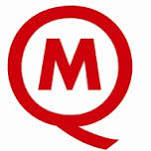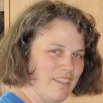
“An editing job is worth what someone will pay for it.” Elizabeth d’Anjou talks about estimating at the Editors Kingston meeting on January 13.
Association News
At the Editors Kingston January 13 meeting, coordinator Ellie Barton began by sharing some association news:
- Winter/spring series of editing-related seminars have been announced by both the Editors Toronto and Editors Ottawa-Gatineau groups. (And tonight’s speaker, our own Elizabeth d’Anjou, is teaching two of the Editors Toronto offerings.)
- The Professional Editorial Standards are being reviewed this year. The task force working on the project welcomes input from members, and will also be eventually seeking some non-member reviewers. The standards are an Editors Canada publication that lay out what a professional editor does (or should do); they are the basis of the Editors Canada certification exams. Watch for info from the Editors Canada office or contact chairs Moira White <moira@ubiquitext.ca> and Michelle Boulton <michelle@3cpublications.ca>.
Speaker
Thanks to Hélène Lawler for the following report.
We were treated to the wisdom of seasoned freelance editor Elizabeth d’Anjou on that ever-elusive topic we’re all keen to know more about: money. Or, more precisely, how to earn more of it!
Possibly the only aspect of freelancing more challenging than landing new gigs is figuring out how much to charge for them. Part art, part science, coming up with accurate estimates can make the difference between earning a healthy income and struggling to make ends meet.
Through years of experience and more trial and error than she’d care to remember, Elizabeth has developed some strategies for addressing this challenge, which she generously shared with the group during her talk.
Elizabeth admitted that, early in her career, she had thought she could easily estimate how long a project would take by simply dividing the number of pages in a project by an average editing pace in pages per hour. She learned the hard way, however, that there is usually more to it than that. Today she starts with a formula something like this:
(# of pages / pages per hour) + special items + negotiating alts (30–50%) + other tasks + admin time
Elizabeth then went into detail about each component, offering useful tips along the way. For example, we were warned to always request the word count—not the page count—and to ask important questions such as “who else is involved in the process of approval?” and “what is the process for negotiating changes?”
There’s so much to keep in mind! So many different pieces that may crop up and add in time, effectively reducing our hourly rate if we haven’t factored them in to our initial estimate. For this reason, Elizabeth pointed out, getting the same kind of work repeatedly can make a big difference in accurate estimating.
Next we delved into setting rates. There is no one “typical” rate for editing; pay scales differ dramatically across industries and disciplines, and can also vary according to the type of editing. As a very rough guide, Elizabeth said, common hourly charges range from $25 to $65 or more per hour.
When deciding what to charge per hour, Elizabeth reminded us that we freelancers must factor in all the non-billable hours we log, as well as any overhead. A simple rule of thumb is that our hourly rate x 1,000 roughly equals our yearly salary, based on approximately 25 billable hours of work per week.
Elizabeth encouraged us not to undervalue editing services, and pointed out that, ultimately, an editing job is worth whatever someone is willing to pay for it.
 Are you curious about what goes on behind the scenes at a university press?
Are you curious about what goes on behind the scenes at a university press?


 Elizabeth is the assistant coordinator of Editors Kingston and a freelance editor with over 20 years’ experience. She has presented the popular Editors Canada seminar Taking the Plunge: Starting Out as a Freelance Editor across the country. Her clientèle includes educational publishers, nonprofit organizations, government agencies, and academics. She also teaches grammar and copy editing online in Ryerson University`s Publishing Certificate Program.
Elizabeth is the assistant coordinator of Editors Kingston and a freelance editor with over 20 years’ experience. She has presented the popular Editors Canada seminar Taking the Plunge: Starting Out as a Freelance Editor across the country. Her clientèle includes educational publishers, nonprofit organizations, government agencies, and academics. She also teaches grammar and copy editing online in Ryerson University`s Publishing Certificate Program.